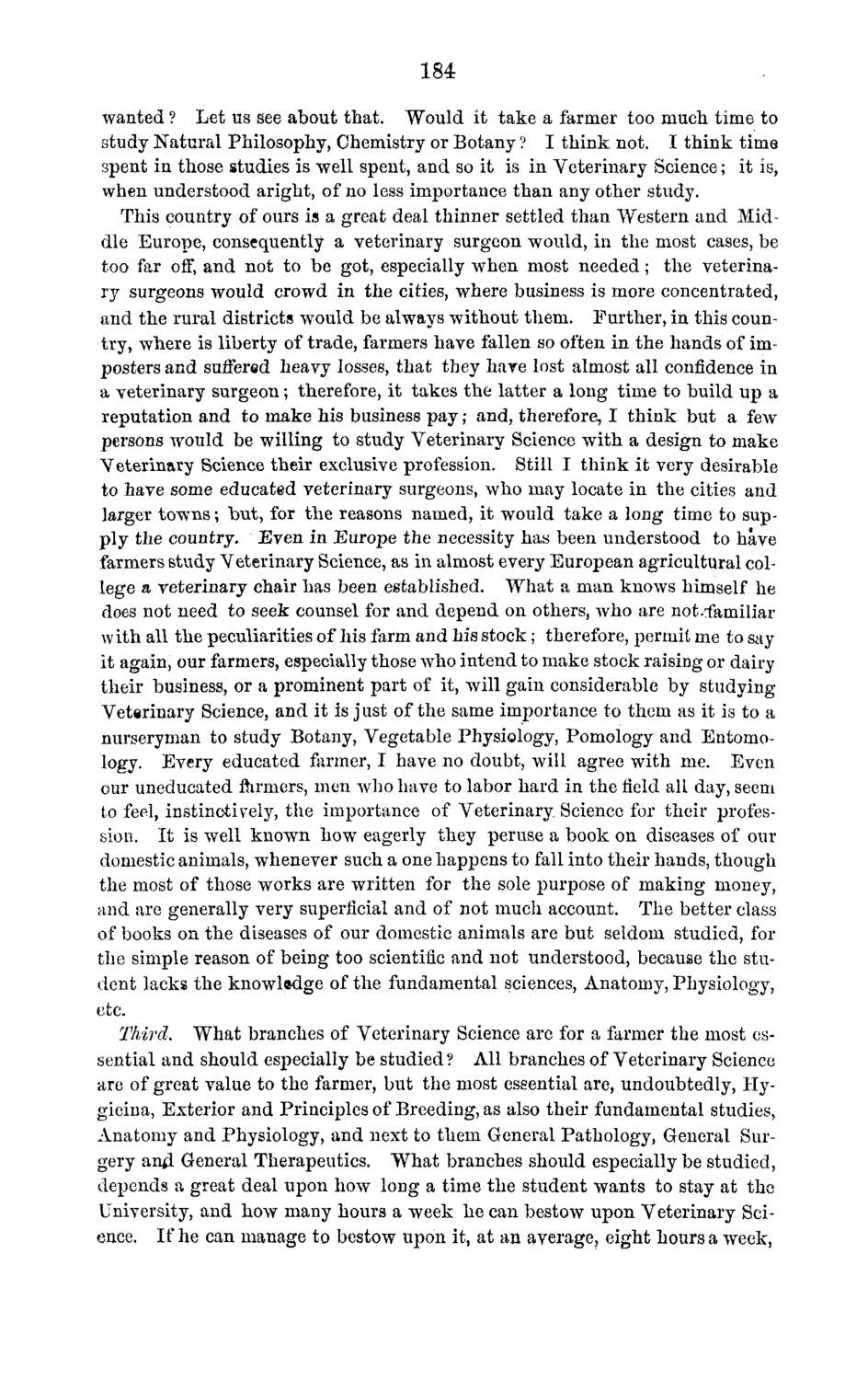| |
| |
Caption: Board of Trustees Minutes - 1870
This is a reduced-resolution page image for fast online browsing.

EXTRACTED TEXT FROM PAGE:
184 wanted ? Let us see about that. Would it take a farmer too much time to study Natural Philosophy, Chemistry or Botany ? I think not. I think time spent in those studies is well spent, and so it is in Veterinary Science; it is, when understood aright, of no less importance than any other study. This country of ours is a great deal thinner settled than Western and Middle Europe, consequently a veterinary surgeon would, in the most cases, be too far off, and not to be got, especially when most needed; the veterinary surgeons would crowd in the cities, where business is more concentrated, and the rural districts would be always without them. Further, in this country, where is liberty of trade, farmers have fallen so often in the hands of imposters and suffered heavy losses, that they have lost almost all confidence in a veterinary surgeon; therefore, it takes the latter a long time to build up a reputation and to make his business pay,- and, therefore, I think but a few persons would be willing to study Veterinary Science with a design to make Veterinary Science their exclusive profession. Still I think it very desirable to have some educated veterinary surgeons, who may locate in the cities and larger towns; "but, for the reasons named, it would take a long time to supply the country. Even in Europe the necessity has been understood to have farmers study Veterinary Science, as in almost every European agricultural college a veterinary chair has been established. What a man knows himself he does not need to seek counsel for and depend on others, who are not/familiar with all the peculiarities of his farm and his stock; therefore, permit me to say it again, our farmers, especially those who intend to make stock raising or dairy their business, or a prominent part of it, will gain considerable by studying Veterinary Science, and it is just of the same importance to them as it is to a nurseryman to study Botany, Vegetable Physiology, Pomology and Entomology. Every educated farmer, I have no doubt, will agree with me. Even our uneducated formers, men who have to labor hard in the field all day, seem to feel, instinctively, the importance of Veterinary Science for their profession. It is well known how eagerly they peruse a book on diseases of our domestic animals, whenever such a one happens to fall into their hands, though the most of those works are written for the sole purpose of making money, and are generally very superficial and of not much account. The better class of books on the diseases of our domestic animals are but seldom studied, for the simple reason of being too scientific and not understood, because the student lacks the knowledge of the fundamental sciences, Anatomy, Physiology, etc. Third. What branches of Veterinary Science arc for a farmer the most essential and should especially be studied ? All branches of Veterinary Science are of great value to the farmer, but the most essential are, undoubtedly, Hygieina, Exterior and Principles of Breeding, as also their fundamental studies, Anatomy and Physiology, and next to them General Pathology, General Surgery and General Therapeutics. What branches should especially be studied, depends a great deal upon how long a time the student wants to stay at the University, and how many hours a week he can bestow upon Veterinary Science. If he can manage to bestow upon it, at an average, eight hours a week,
| |